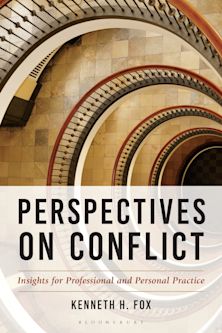This product is usually dispatched within 3 days
- Delivery and returns info
-
Free US delivery on orders $35 or over
Description
Karen S. Glover investigates the social science practices of racial profiling inquiry, examining their key influence in shaping public understandings of race, law, and law enforcement. Commonly manifesting in the traffic stop, the association with racial minority status and criminality challenges the fundamental principle of equal justice under the law as described in the U.S. Constitution. Communities of color have long voiced resistance to racialized law and law enforcement, yet the body of knowledge about racial profiling rarely engages these voices.
Applying a critical race framework, Glover provides in-depth interview data and analysis that demonstrate the broad social and legal realms of citizenship that are inherent to the racial profiling phenomenon. To demonstrate the often subtle workings of race and the law in the post-Civil Rights era, the book includes examination of the 1996 U.S. Supreme Court's Whren decision-a judicial pronouncement that allows pretextual action by law enforcement and thus widens law enforcement powers in decisions concerning when and against whom law is applied.
Table of Contents
2 Acknowledgments
Chapter 3 Introduction: To a Critical Race Criminology
Chapter 4 1. History, Entre, and the Rise of Racial Profiling Research
Chapter 5 2. Defending the Constitution?
Chapter 6 3. The Racial Project of Mainstream Criminology's Approach to Understanding Racial Profiling
Chapter 7 4. Critical Race Methodology and Race Theory
Chapter 8 5. Concepts in Citizenship
Chapter 9 6. An Ethnographic Reading of Racial Profiling
Chapter 10 7. Vicarious Experience, Panopticonism, and Oral History
Chapter 11 Conclusion
12 Appendix A: Methods
13 Appendix B: Interview Schedule
14 Bibliography
Product details
| Published | Jul 16 2009 |
|---|---|
| Format | Paperback |
| Edition | 1st |
| Extent | 184 |
| ISBN | 9780742561069 |
| Imprint | Rowman & Littlefield Publishers |
| Dimensions | 9 x 6 inches |
| Series | Issues in Crime and Justice |
| Publisher | Bloomsbury Publishing |



































